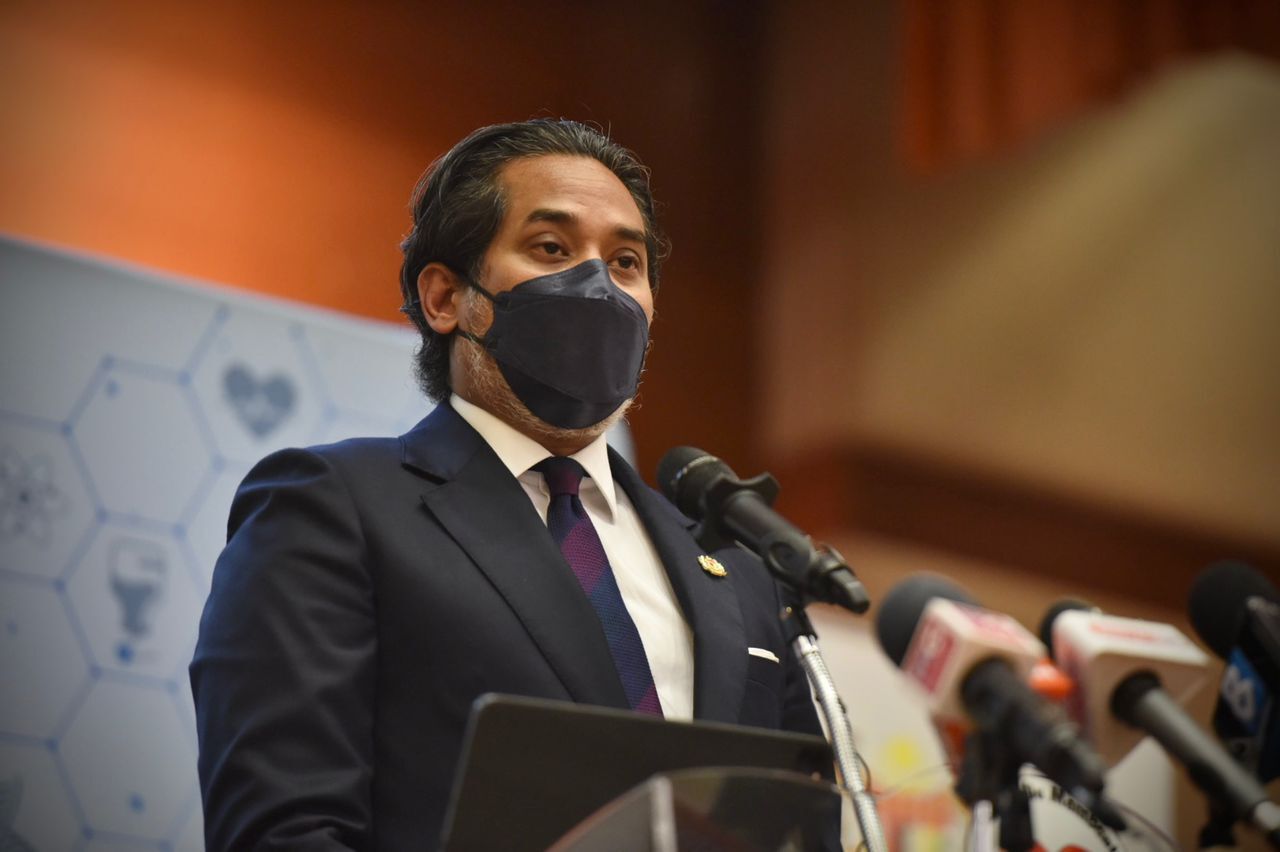KUALA LUMPUR, Dec 1 — Malaysia is currently reviewing a ban on travel to and from the United Kingdom, Australia, the Netherlands, Belgium, and Germany that have reported confirmed or suspected community transmission of the Omicron Covid-19 variant.
Health Minister Khairy Jamaluddin today announced that the government will issue daily updates to Malaysia’s travel ban list of countries that report the spread of Omicron or countries considered high-risk after the transmission of the new variant of concern.
Malaysia is temporarily denying entry to foreign visitors flying directly from or transiting through the countries put on this list, as well as to foreigners who had visited those countries within 14 days before arrival in Malaysia. The government will also prohibit Malaysian citizens from travelling to the countries on the travel ban list.
Malaysian citizens and long-term pass holders (permanent residents, spouse visa, MM2H, and resident passes) who arrive from the listed countries will be subject to compulsory 14-day quarantine at designated stations regardless of their Covid-19 vaccination status; RT-PCR tests 72 hours before departure, upon arrival at the airport in Malaysia, and Day 10 of quarantine.
A risk assessment will be conducted on Day 14 of quarantine, whereby quarantine will be extended if one is still experiencing Covid-19 symptoms by then.
As of December 1, eight countries have been placed on Malaysia’s travel ban list: South Africa, Botswana, Eswatini, Lesotho, Mozambique, Namibia, Zimbabwe, and Malawi.
At least 20 countries across Africa, Europe, Asia, and Northern Canada have so far reported Omicron infections.
Khairy also announced that Malaysia would suspend plans to create vaccinated travel lanes for quarantine-free travel with countries put on the travel ban list. For the Malaysia-Singapore Vaccinated Travel Lane (VTL), both air and land travellers arriving in Malaysia are required to self-test for Covid-19 on Day Three and Day Seven after arrival, and to report their test results on MySejahtera.
“Once we have more information on the status of the [Omicron] cases in those countries that you mentioned, and after having done risk assessments, we will decide whether or not those countries will be included in the list.
“But I can inform you that those countries that you mentioned are being reviewed right now,” Khairy told reporters at a media briefing today, when CodeBlue asked if the UK, Australia, the Netherlands, Belgium, and Germany would be placed on the travel ban list.
Scotland has reported six Omicron cases, some of which had no known travel history. Scotland’s First Minister Nicola Sturgeon reportedly said this suggested possible community transmission of the variant in Scotland.
Australia reported yesterday its first community Omicron case, after an infected traveller from southern Africa visited several shopping centres in Sydney while contagious for two days in the community.
CBS News reported yesterday Netherlands health authorities as saying that they had detected Omicron in samples of Covid-19 cases dated November 19 to 23, before positive Omicron cases were detected in passengers arriving in Amsterdam last November 26 from South Africa.
Authorities in Belgium and Germany also reportedly said tests confirmed that Omicron was in those countries before South Africa raised the alert last November 24 about the variant.
Khairy said the Ministry of Health (MOH) will provide a list of countries with Omicron infections and countries designated as “high-risk” that will be updated daily and issued to ministries and relevant federal agencies, such as the Foreign Affairs Ministry, the Ministry of Tourism, Arts and Culture, the Ministry of Transport, and the Immigration Department.
“Right now, there may be questions as to why [travel restrictions] apply to these listed countries when Omicron infections have been detected globally. The MOH’s evaluation takes into account whether the existence of Omicron comes from an imported case or a community case.
“Secondly, our MOH’s risk assessment will look at whether these countries have seen a spike in infections within a short period of time, and the third consideration will be their vaccination rates. If they have a low vaccination rate and have a wide community spread, MOH will conduct a risk evaluation to put the country on the [high-risk] list.
“But if it’s an imported case, the Omicron spread is still relatively small, and the country’s vaccination rate is high, MOH will exclude the nation from the high-risk list upon assessment. This evaluation will be conducted daily by the MOH’s disease control division,” Khairy said.
Khairy said Malaysia’s “temporary” travel restrictions and mandatory quarantine orders on travellers from southern African countries were done as a “precautionary” measure and “by no means to punish” these countries for alerting the world of the new coronavirus variant.
“One thing that I would like to stress is that even though we have put a travel restriction on people coming in from southern Africa, this is a temporary measure, and the moment we feel that it is safe, we will lift these measures.
“This is by no means a measure that we have taken to punish these countries, rather it is more precautionary as far as Malaysia is concerned. We congratulate and thank South African scientists who detected Omicron, the first to detect Omicron, to sequence it, and to share it with the world — and I think that speaks volumes in terms of South Africa’s professional response, scientific response to this and subsequently now, we’ve discovered that other countries actually detected Omicron much earlier, but didn’t inform the world.
“So the reassurance is that this is hopefully temporary, and that we can review this when we have better information,” Khairy said.
Malaysian public health experts have opposed lockdowns and border closures, suggesting that the government instead boost genomic surveillance and Covid-19 booster vaccination to deal with Omicron.
The International AIDS Society has similarly condemned “discriminatory” travel bans, calling for an international code of conduct to guide countries’ responses to new variants and emerging information on Covid-19.








